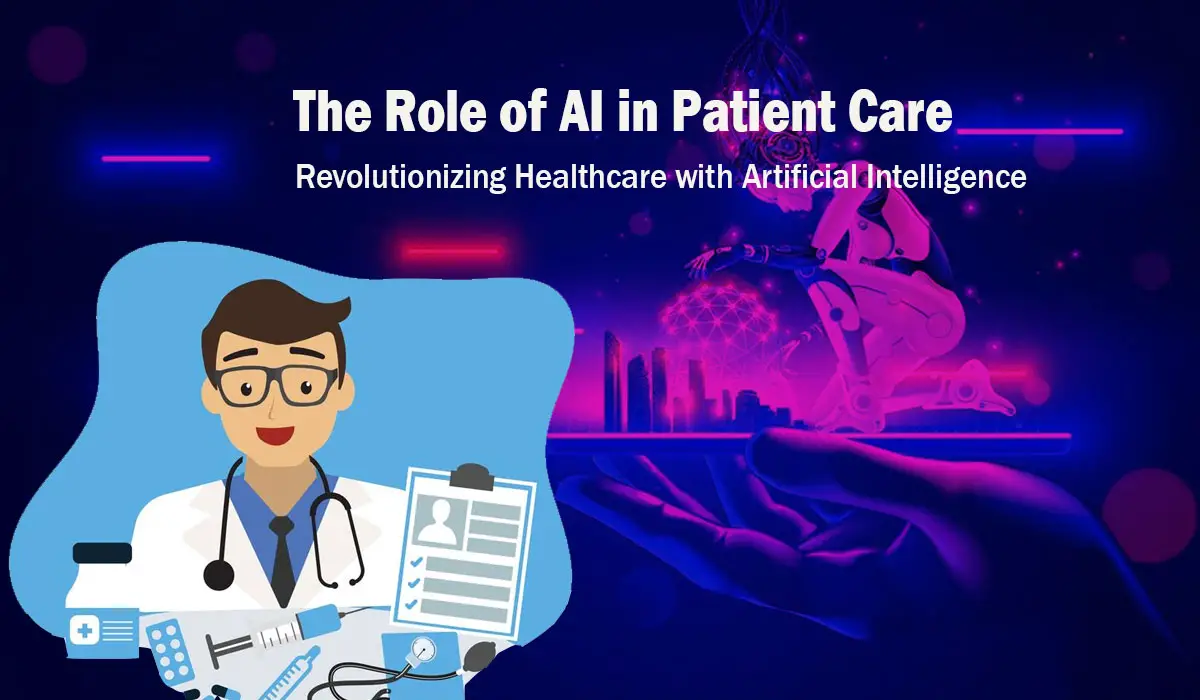Artificial Intelligence (AI) has emerged as a transformative force in various industries, and healthcare is no exception. The integration of AI in patient care has revolutionized medical practices, enabling healthcare providers to deliver more accurate diagnoses, personalized treatments, and improved patient outcomes. In this article, we will explore the significant role of AI in patient care and how it is shaping the future of healthcare.
Introduction
With advancements in technology and the increasing availability of data, AI has become a valuable tool in healthcare. Its ability to analyze vast amounts of medical information, interpret complex data, and learn from patterns makes it an invaluable asset in patient care.
What is the Role of AI in Patient Care?
AI plays a multifaceted role in patient care, impacting various aspects of healthcare delivery. Let’s delve into some of the key roles AI assumes in transforming patient care.
Diagnosis and Medical Records Analysis
AI algorithms can analyze patient symptoms, medical history, and diagnostic test results to aid in accurate and timely diagnoses. By comparing individual cases with a vast database of medical knowledge, AI can assist healthcare providers in identifying patterns and making more informed decisions.
Read also: How to Use AI to Make Money Online
Early Disease Detection
Early detection is crucial in treating many diseases effectively. AI algorithms can sift through large amounts of patient data to identify subtle indicators of diseases at an early stage. This can lead to prompt interventions, potentially saving lives and improving patient outcomes.
Automation of Mundane Tasks
AI can automate routine administrative tasks, such as appointment scheduling, documentation, and billing. By freeing up healthcare professionals’ time from these repetitive tasks, they can focus more on direct patient care and complex medical decision-making.
Remote Care and Telemedicine
AI enables remote care and telemedicine by facilitating virtual consultations, remote monitoring, and telehealth platforms. Patients can receive medical advice, monitor their health conditions, and access healthcare services without physically visiting a medical facility. This not only increases convenience for patients but also extends healthcare services to underserved areas.
Disease Prevention and Forecasting
AI algorithms can analyze population health data, environmental factors, and genetic information to predict disease outbreaks and identify high-risk individuals. By proactively addressing these risks, healthcare providers can implement preventive measures and allocate resources more efficiently.
Efficiency and Patient Safety
AI-powered systems can enhance operational efficiency in healthcare settings. They can streamline workflows, reduce errors in medication administration, and enhance patient safety through real-time monitoring and alerts. By automating processes and flagging potential risks, AI contributes to a safer and more efficient healthcare environment.
Specific Examples of How AI is Used in Patient Care
Diagnostic Accuracy
AI algorithms can analyze medical imaging scans, such as X-rays, CT scans, and MRIs, with high precision and speed. By assisting radiologists in identifying abnormalities and providing additional insights, AI enhances diagnostic accuracy and reduces the chances of misdiagnosis.
Image Analysis
AI can analyze medical images to identify patterns, classify tumors, and assess disease progression. This technology helps in the early detection of conditions like cancer, enabling timely intervention and improving treatment outcomes.
Drug Development
AI algorithms can analyze large datasets and identify potential drug candidates. By simulating drug interactions, predicting efficacy, and optimizing dosage, AI expedites the drug discovery and development process, leading to more targeted and effective treatments.
Improved Medication Adherence
AI-powered systems can monitor patients’ medication adherence and provide reminders for timely dosage. This technology helps prevent medication errors and promotes patient compliance, leading to better treatment outcomes.
Automation of Administrative Tasks
AI streamlines administrative tasks such as appointment scheduling, medical record management, and billing. By automating these processes, healthcare providers can reduce administrative burdens and allocate more time to patient care.
Virtual Nursing Assistants
Virtual nursing assistants powered by AI can provide support and guidance to patients at home. They can offer personalized health advice, monitor vital signs, and provide reminders for medication or follow-up appointments. This technology enables patients to receive continuous care and support, even outside healthcare facilities.
Robot-Assisted Surgery
AI-enabled robotic systems can assist surgeons in performing complex procedures with precision and accuracy. By combining human expertise with robotic precision, these systems enhance surgical outcomes, reduce complications, and shorten recovery times.
Data Management and Analysis
AI can analyze vast amounts of healthcare data, including electronic health records, research studies, and patient outcomes. By uncovering hidden patterns and insights, AI helps in clinical decision-making, research advancements, and population health management.
Conclusion
The role of AI in patient care is rapidly expanding, revolutionizing the healthcare industry. From accurate diagnoses and early disease detection to automation of mundane tasks and enhanced patient safety, AI brings numerous benefits to healthcare providers and patients alike. Embracing AI in patient care holds the promise of improved outcomes, increased efficiency, and a more personalized approach to healthcare delivery.
FAQs
- How does AI assist in diagnosing medical conditions? AI algorithms analyze patient symptoms, medical history, and diagnostic results to identify patterns and assist healthcare providers in making accurate diagnoses.
- Can AI predict disease outbreaks? Yes, AI can analyze population health data, environmental factors, and genetic information to predict disease outbreaks and identify high-risk individuals.
- What is the role of AI in drug development? AI accelerates the drug discovery process by analyzing large datasets, simulating drug interactions, and optimizing dosage, leading to more targeted and effective treatments.
- How does AI improve medication adherence? AI-powered systems monitor patients’ medication adherence and provide reminders, reducing medication errors and promoting patient compliance.
- What are virtual nursing assistants? Virtual nursing assistants powered by AI offer support and guidance to patients at home, providing personalized health advice, monitoring vital signs, and offering reminders for medication or follow-up appointments.

